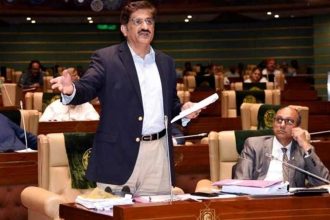Pakistan’s federal government stepped up efforts to stop anti-state campaigns on social media. The National Cyber Crime Investigation Agency (NCCIA) leads this push. The agency has filed 356 cases against people accused of spreading harmful content online. It also started 789 inquiries to investigate suspects targeting state institutions.
During the recent Marka-e-Haq campaign, anti-army posts spread widely online. The NCCIA acted fast, filing 52 cases against those sharing such content. The agency also helped police investigate the May 9, 2025, incident, where social media was used to plan attacks. By checking old posts and digital clues, the NCCIA gathered evidence that led to convictions in Lahore, Sargodha, and Mianwali.
To stop harmful online content, the NCCIA teams up with the Pakistan Telecommunication Authority (PTA). Together, they remove harmful posts quickly and ask platforms to block accounts spreading anti-state messages. The NCCIA also formed special teams, called Joint Investigation Teams, to tackle these issues. These steps aim to keep social media safe and prevent the spread of false information.
Read: Islamabad Court Blocks 27 YouTube Channels for Anti-State Content
The NCCIA uses its Open Source Intelligence Unit to watch social media closely. This team spots patterns of harmful content early. By catching these posts before they spread, the agency works to protect Pakistan from false and dangerous information.
The government says these actions are vital to keep Pakistan safe. Social media is now a common place for harmful campaigns that attack state institutions. By acting quickly, the NCCIA aims to stop these threats and protect the country’s security.
Pakistan’s crackdown on anti-state social media campaigns shows its commitment to national security. With the NCCIA leading the charge, the country is working to stop harmful content online.






